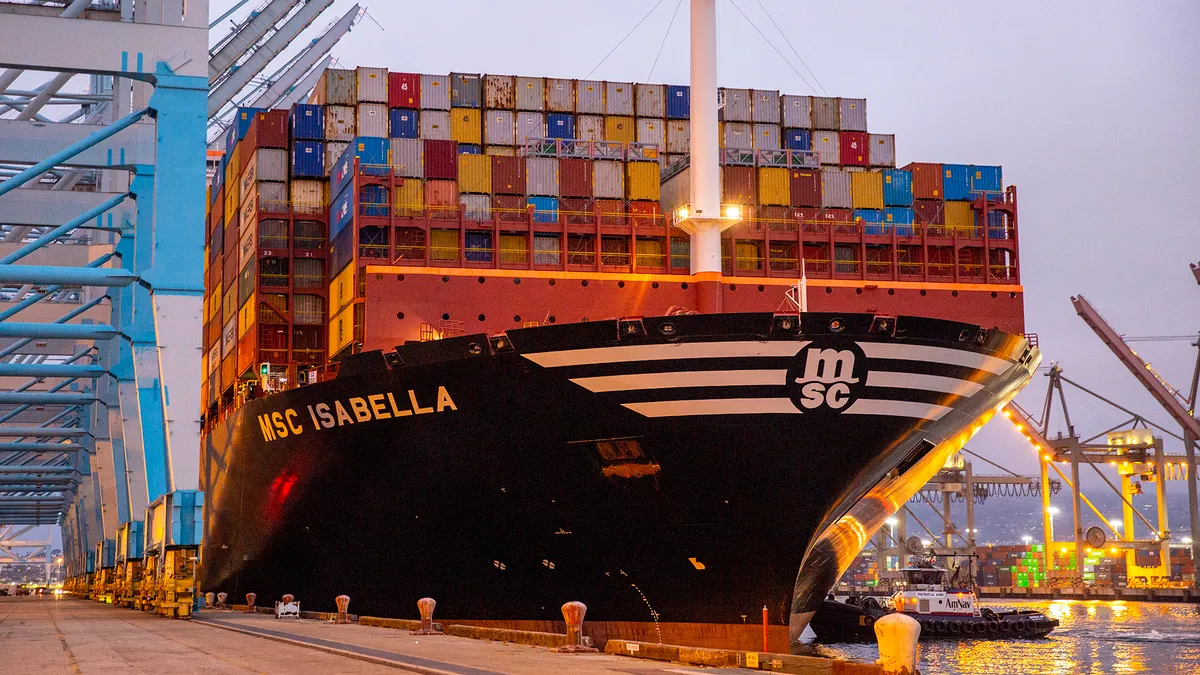Dive Brief:
- Eight out of 10 corporate economists forecast that U.S. tariffs will stoke inflation this year, Wolters Kluwer said Monday as the Trump administration intensified its shakeup of trade policy by imposing 25% tariffs on steel and aluminum imports.
- Economists at companies ranging from Ford Motor Co. to Morgan Stanley and KPMG to Eaton Corp marked up their forecast for the increase in the consumer price index this year to 2.7% from 2.5% in October, Wolters Kluwer found in a survey.
- Threatened tariffs “could boost inflation expectations in an economy that has just experienced the fastest inflation in more than 40 years,” Haver Analytics Senior Economist Sandy Batten said in a statement. In addition, import duties “could elicit a trade war and thereby slow economic growth.”
Dive Insight:
The gain in the personal consumption expenditures price index excluding food and energy — the Federal Reserve’s preferred inflation measure — will probably average nearly 2.7% during the four quarters beginning in April, according to the average forecast by the 46 surveyed economists.
Efforts by Fed policymakers to curb inflation to their 2% target have stalled for several months. The core PCE index last year rose 2.8%, according to the Bureau of Economic Analysis.
“Inflation is stuck above target, with risks skewed to the upside,” Bank of America Securities analysts said Monday in a note to clients. “The impact of policy changes on inflation is likely to play out in 2H 2025, although imposition of additional tariffs in the next few weeks could advance the timeline.”
President Donald Trump has dismissed inflation risks and said tariffs will create jobs, spur investment and help reduce the federal debt.
Yet many economists see import duties doing more harm than good.
“Historical evidence shows tariffs raise prices and reduce available quantities of goods and services for U.S. businesses and consumers, resulting in lower income, reduced employment and lower economic output,” the Tax Foundation said this month.
Trump last week suspended until March 4 25% tariffs on imports from Mexico and Canada after discussions with his counterparts in the two countries. That same day, Beijing imposed retaliatory tariffs on U.S. imports in response to 10% duties on imports from China announced by Trump.
Trump on Monday set blanket tariffs on imports of steel and aluminum effective March 4. He also said he intends this week to impose reciprocal tariffs on U.S. trade partners.
Consumers have grown increasingly concerned that tariffs will worsen price pressures, according to Joanne Hsu, director of the University of Michigan’s consumer survey.
“Many consumers appear worried that high inflation will return within the next year,” Hsu said Friday, noting that survey interviews ended Tuesday.
Expectations for inflation a year from now rose to 4.3% this month from 3.3% last month, “the highest reading since November 2023 and marking two consecutive months of unusually high increases,” she said.
Median expectations for inflation in five years rose to 3% last month from 2.7% in December, the New York Fed said Monday, citing its Survey of Consumer Expectations. Expectations for both the one- and three-year periods were unchanged at 3%.
Fed officials closely monitor consumer expectations for inflation, concerned that such sentiments can become self-fulfilling.
Trump’s reciprocal tariff threat “spooked the bond market on Friday,” pushing up yields, Ed Yardeni, president of Yardeni Research, said in a research note to clients.
“That’s because higher tariffs would cause at least a one-time spike in consumer prices, which might trigger a renewed inflation cycle,” he said.
The yield on the 10-year Treasury note — the benchmark for borrowing costs — was 4.5% on Monday, little changed from Friday.
Editor’s note: This story was updated with Trump's tariff action on Monday.















